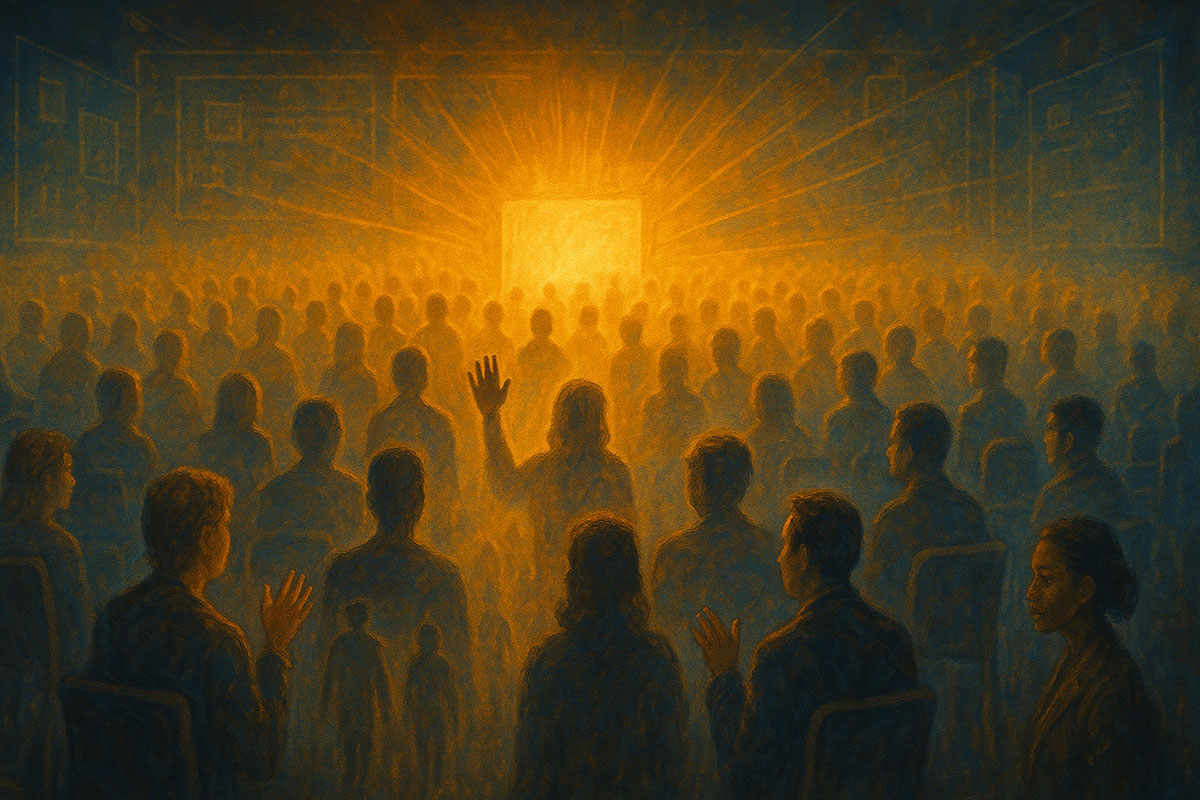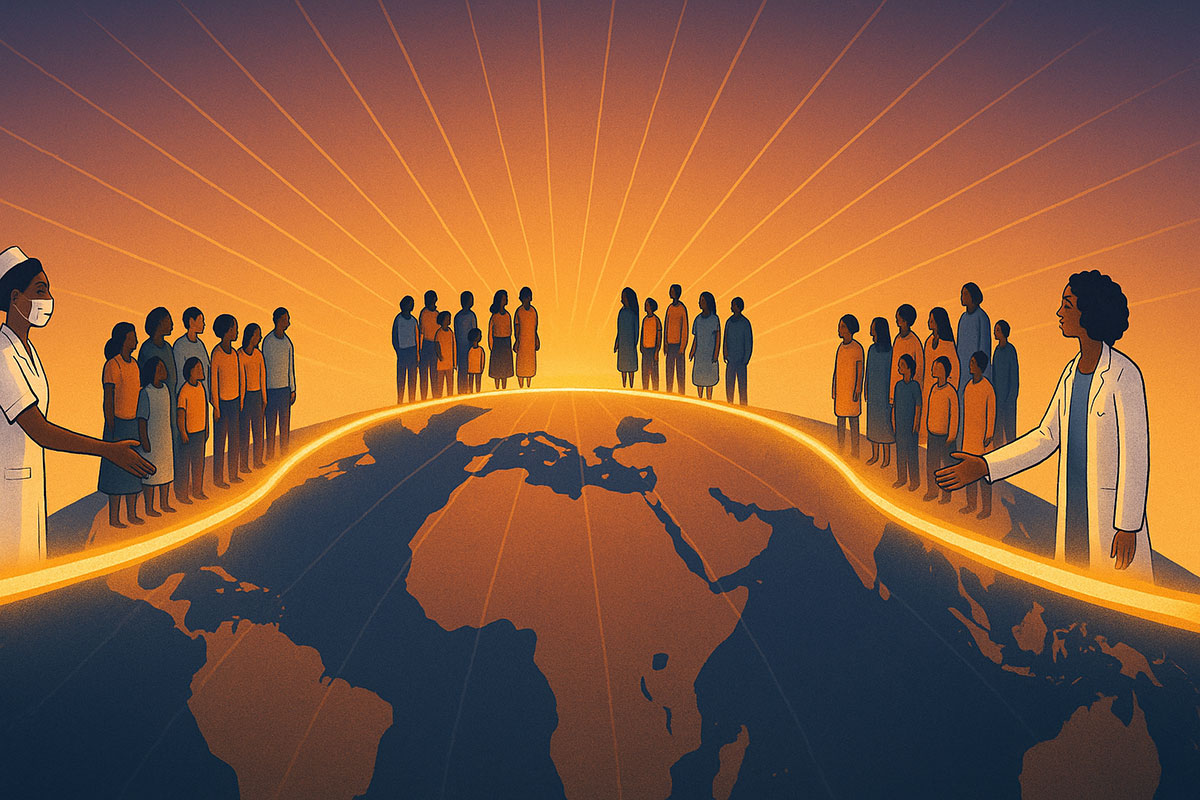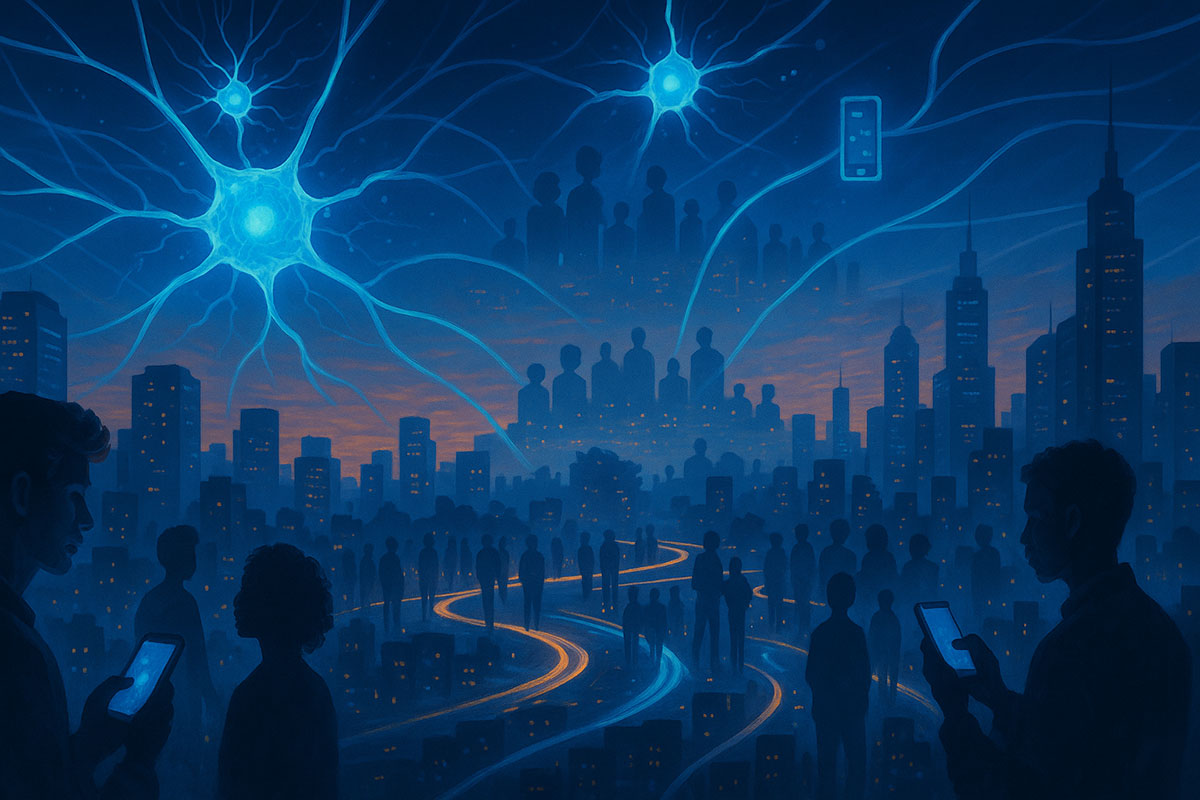
|
Getting your Trinity Audio player ready...
|

Introduction
In 2025, the world is facing a turning point in mental health. Rates of anxiety, depression, trauma, and addiction have reached historic highs, stretching systems of care beyond their limits. Yet, never before have we had such a wealth of knowledge, compassion, and innovation at our disposal.
To address this global crisis, ten of the world’s most respected mental health pioneers — Aaron Beck, Judith Beck, Marsha Linehan, Kay Redfield Jamison, Bessel van der Kolk, Gabor Maté, Daniel J. Siegel, Nadine Burke Harris, Thomas Insel, and Vikram Patel — gathered in an extraordinary roundtable. Representing decades of research, lived experience, and clinical breakthroughs, they came together not as isolated experts, but as a united voice for healing.
What follows is their collective wisdom across five urgent themes: the global crisis post-pandemic, trauma and resilience, equity across borders, rethinking addiction, and the future of neuroscience, tech, and prevention. Their insights remind us that while the challenge is immense, the solutions are real, and hope is possible.
(Note: This is an imaginary conversation, a creative exploration of an idea, and not a real speech or event)
Topic 1: The Global Mental Health Crisis Post-Pandemic

Moderator: Dr. Thomas Insel
Opening by Thomas Insel
We’re sitting together in 2025, facing a stark reality: millions of people across the globe are struggling with mental health issues at levels higher than ever recorded. From teenagers battling anxiety to adults navigating loneliness and depression, the demand for care has outpaced our systems. My first question to all of you: What do you see as the single biggest lesson we’ve learned about mental health from the pandemic years, and how should that guide us now?
Judith Beck
One of the clearest lessons is accessibility. During the pandemic, teletherapy wasn’t just an experiment — it became a necessity. We learned that CBT and other structured therapies can be effectively delivered online, reaching people who might never walk into a clinic. Moving forward, our challenge is to integrate these methods permanently, ensuring quality and affordability. The barrier isn’t the therapy itself; it’s the infrastructure and training.
Marsha Linehan
I agree, Judith. From my perspective, the crisis revealed how fragile people’s emotional regulation skills are when under prolonged stress. Suicide attempts, self-harm, emotional dysregulation — these rose sharply. The lesson is we can’t wait until people are in crisis. We need to embed DBT skills — mindfulness, distress tolerance, interpersonal effectiveness — into schools, workplaces, and communities as preventive mental health education. That’s what I see as the big takeaway.
Nadine Burke Harris
For me, the pandemic highlighted the profound link between stress, childhood adversity, and long-term health. Families under economic strain, children isolated from school, parents overwhelmed — the mental health impact will last for decades if we don’t intervene. The lesson is prevention must start in childhood. Screening for ACEs, building resilience programs, and investing in parents is not optional anymore. If we want to prevent a generational wave of depression and anxiety, we start with kids.
Aaron Beck (legacy perspective)
What the pandemic confirmed is what we always knew but failed to prioritize: thoughts shape emotions, and emotions drive behavior. The collective uncertainty fed catastrophic thinking: “This will never end, I’ll never be safe.” These distorted thoughts fueled anxiety and hopelessness. Cognitive restructuring — helping people test their beliefs against evidence — is more critical than ever. It’s not just clinical, it’s cultural: we need to teach populations how to manage thinking patterns before they spiral.
Thomas Insel
That’s powerful. Let me shift the frame. We’ve spoken about lessons. Now, my second question: Given what we’ve learned, what’s the most urgent innovation we need to prioritize in 2025 to actually close the gap between demand and care?
Judith Beck
Scale. We must scale. That means training more paraprofessionals in structured CBT, much like community health workers. We can’t rely on a tiny pool of licensed therapists. With proper training and supervision, we can safely expand access to millions.
Nadine Burke Harris
I’d add integration. We cannot keep mental health siloed from physical health. Every pediatrician, every primary care doctor, should be trained to screen for mental health symptoms and connect patients to care seamlessly. This requires system redesign.
Marsha Linehan
Innovation isn’t always tech. Sometimes it’s mindset. If we treated emotional dysregulation like we treat diabetes — with early education, skill training, daily practice — we’d see prevention become reality. DBT apps and peer-led groups could democratize access.
Aaron Beck
I agree. Technology is a tool, but the innovation lies in dissemination. Imagine if CBT principles were taught in every high school class, in digestible modules. Prevention through education at scale is the true innovation.
Thomas Insel
Excellent. Let me bring us to a final question. We’re talking about systems, access, and prevention — but at the human level, what is the single most hopeful path forward for someone struggling today in 2025?
Marsha Linehan
That they are not broken. Suffering doesn’t mean defectiveness. There are concrete skills anyone can learn to regulate emotions, even in deep despair. That hope is very real.
Judith Beck
That evidence-based treatments work. CBT, DBT, trauma-focused care — we have therapies with decades of proof behind them. People should know: recovery is not only possible, it’s predictable when treatment is accessible.
Nadine Burke Harris
That healing is relational. Connection — to family, to community, to support — is the strongest buffer against adversity. If you’re struggling, don’t isolate. Reach out, even if just to one person.
Aaron Beck
That thoughts can change, and when they do, the world feels different. Hope comes from realizing you are not trapped in your thoughts; you can challenge and reshape them.
Thomas Insel
And I’d add: hope lies in the fact that society is finally recognizing this crisis for what it is. Funding, awareness, innovation — they are coming together at last. If you’re struggling in 2025, know this: you are seen, and help is expanding.
Topic 2: Trauma and Resilience in a Changing World

Moderator: Dr. Bessel van der Kolk
Opening by Bessel van der Kolk
When we talk about trauma in 2025, it’s not only about war veterans or survivors of accidents. It’s about children facing chronic stress, communities fractured by inequality, and the global population living under the weight of climate change, pandemics, and conflict. My first question to you is simple: What is trauma in today’s world, and why does resilience matter more than ever?
Gabor Maté
Trauma is not what happens to you — it’s what happens inside you as a result of what happens to you. It’s the wound that remains when overwhelming events cut us off from our true selves. In today’s world, trauma is everywhere: from children living in poverty to professionals numbed by burnout. Resilience matters because it’s the ability to reconnect with the self — to reclaim wholeness rather than remain defined by the wound.
Nadine Burke Harris
From the perspective of children and families, trauma is cumulative. The more Adverse Childhood Experiences (ACEs) a child has, the more likely they are to develop depression, anxiety, or even heart disease later in life. In our world of 2025, with social media pressures, economic instability, and climate anxiety, children are carrying heavier loads than ever. Resilience isn’t an abstract word; it’s built by stable, loving relationships and community supports.
Kay Redfield Jamison
As someone who has lived through bipolar disorder, I see trauma not only as external events but as the despair that overwhelms the mind. Resilience means building a bridge between vulnerability and strength. It’s not about denying suffering but about finding meaning in it — whether through treatment, love, or work that gives life purpose. We must show people that resilience is not reserved for the strong — it’s forged in the fire of weakness.
Daniel J. Siegel
From neuroscience, we know that resilience is relational. The brain is a social organ. Trauma disconnects neural circuits of regulation, leaving people stuck in survival states. But safe, attuned relationships — whether therapy, friendship, or community — rewire the brain. Mindfulness, compassion, and integration practices literally change how the brain processes trauma. Resilience is not mystical; it is measurable neuroplasticity.
Bessel van der Kolk
Beautifully said. Let me bring us to the next question. If trauma is so widespread, how do we as a society begin to heal on a larger scale — beyond individual therapy rooms?
Nadine Burke Harris
We start with prevention. Universal ACE screening, trauma-informed schools, parenting support, and community health workers. If every child had at least one stable adult relationship, we would cut the long-term burden of trauma dramatically. Societal healing begins with protecting children.
Gabor Maté
We also must change the conditions that produce trauma. You cannot separate healing from justice. Poverty, racism, and alienation are trauma factories. Healing at scale means creating societies that honor human needs for connection, purpose, and dignity. Otherwise, therapy is just mopping the floor while the faucet runs.
Daniel J. Siegel
And we need integration at the cultural level. Imagine policies that value mental well-being as much as GDP. Imagine schools teaching mindfulness and compassion as core subjects. Societies heal when collective consciousness integrates — when we see we are all interconnected.
Kay Redfield Jamison
And let’s not forget the arts. Poetry, music, storytelling — they are collective therapies. They carry us through grief and remind us of our shared humanity. Societal healing requires both science and art.
Bessel van der Kolk
Yes. Which brings me to my last question. For someone struggling with trauma right now in 2025, feeling broken, what is the single message of hope you would want them to hear?
Kay Redfield Jamison
That you are not defined by your worst moments. Recovery is not only possible — it can make you more compassionate, creative, and alive.
Gabor Maté
That what you feel is not a defect but a response to what you endured. The wound is real, but so is your capacity to heal.
Nadine Burke Harris
That resilience is not something you’re born with or without. It is something that can be built — through relationships, care, and support.
Daniel J. Siegel
That your brain and body are capable of change. Healing is not just a metaphor — it is biological reality.
Bessel van der Kolk
And I would add this: trauma lives in the body, but so does healing. Movement, breath, touch, community — these are not luxuries. They are gateways to reclaiming your life. If you are struggling, you are not alone, and you are not beyond repair.
Topic 3: Equity and Access Across Borders

Moderator: Dr. Vikram Patel
Opening by Vikram Patel
Mental illness does not discriminate, yet access to care does. In low-income nations, more than 75% of people with mental illness receive no treatment at all. Even in wealthy countries, access is skewed by race, income, and geography. My first question is this: If we are serious about mental health equity, where must we begin?
Thomas Insel
We must start with primary care. Mental health can’t remain in a silo. If every doctor’s visit included mental health screening and basic interventions, millions more people would receive care. Equity means embedding mental health in the same way we handle blood pressure or vaccinations — as routine.
Nadine Burke Harris
I’d add that equity begins with children. When we fail to address trauma and stress in childhood, we bake inequality into the next generation. Schools, pediatricians, and community centers must become front lines of mental health care. Prevention is equity.
Judith Beck
Training is key. In many parts of the world, there simply aren’t enough psychiatrists or psychologists. But you don’t need a PhD to deliver effective CBT. With proper training and supervision, community health workers can deliver structured, evidence-based interventions. Scaling therapy training is where equity begins.
Marsha Linehan
And the therapies themselves must be culturally adaptable. DBT has been successfully implemented in Japan, Europe, and the Middle East, but only when local culture is respected. Equity is not exporting Western models wholesale; it’s co-creating with communities to fit their context.
Vikram Patel
Exactly. Let’s go deeper. What are the most promising solutions we can realistically implement in 2025 to close the global care gap?
Judith Beck
Digital interventions. CBT apps, text-based programs, and online peer support groups can reach places where clinicians are scarce. But digital tools must be paired with human connection — supervision, group meetings, or peer mentors.
Thomas Insel
Policy innovation matters too. For example, integrating mental health into universal health coverage. If a nation guarantees access to vaccines, why not to therapy or counseling? Making mental health a human right under health insurance frameworks is a 2025 priority.
Marsha Linehan
Peer-led groups. DBT skills training can be delivered by trained peers in community settings. It’s cost-effective and destigmatizing. When people see “someone like me” leading, it normalizes mental health support.
Nadine Burke Harris
And let’s not forget public education. If parents in every village knew the signs of depression in children, or the basics of stress regulation, we’d prevent countless cases from worsening. Knowledge is as important as medication.
Vikram Patel
That brings us to our final question. For those living in underserved communities today — whether in rural India or inner-city America — what is the most hopeful path forward?
Marsha Linehan
That you don’t need to be wealthy to learn life-saving skills. DBT skills can be taught anywhere, at any level, and they work.
Judith Beck
That evidence-based care is adaptable. Even if you don’t have a licensed therapist nearby, structured CBT principles can be taught by teachers, health workers, even through smartphones.
Nadine Burke Harris
That resilience can be built even in the harshest conditions. One stable adult, one safe relationship, can change a child’s life trajectory. Support doesn’t have to be expensive — it has to be consistent.
Thomas Insel
That governments and systems are finally recognizing mental health as central to health itself. The tide is shifting. The resources, while not yet evenly spread, are coming.
Vikram Patel
And I would add: the most hopeful path forward is the recognition that mental health is not a luxury. It is a human right. And when societies embrace that truth, solutions multiply.
Topic 4: Rethinking Addiction, Stress, and the Bod

Moderator: Dr. Gabor Maté
Opening by Gabor Maté
Addiction is often framed as a moral failing or a matter of weak will. But what I’ve learned in decades of practice is this: addiction is not the problem itself, but an attempt to solve the deeper problem of pain. Stress, trauma, and disconnection are the roots. My first question to you all is: How should we redefine addiction in 2025 so that it leads us toward healing instead of stigma?
Bessel van der Kolk
Addiction is fundamentally about regulation. When the body has been overwhelmed by trauma, substances or behaviors become ways to numb, soothe, or escape. Instead of asking “why the addiction?” we should ask “why the pain?” If we see it this way, we stop blaming and start treating.
Daniel J. Siegel
Neuroscience supports this. Addiction hijacks the brain’s reward and regulation systems. But the root cause is dis-integration — the nervous system stuck in survival mode. Healing means re-integrating the brain, body, and relationships so people no longer need substances as regulators.
Kay Redfield Jamison
As someone who has lived with mental illness, I can say that addiction often arises as an attempt to cope with unbearable emotional states. Redefinition means acknowledging that addiction is entwined with mood disorders, trauma, and despair. Compassion — not condemnation — must be our starting point.
Aaron Beck (legacy perspective)
From a cognitive standpoint, addiction thrives on distorted beliefs: “I can’t function without this,” or “This is the only relief I’ll ever find.” The path forward is helping individuals test these beliefs against evidence. When thoughts change, behavior can follow. Redefining addiction means giving people tools to see beyond their immediate impulses.
Gabor Maté
That’s powerful. Let me take us to the next question. If addiction is rooted in stress and trauma, what are the most promising ways we can treat it — body, mind, and soul — in 2025?
Daniel J. Siegel
We must emphasize mind-body practices: mindfulness, breathwork, movement. These regulate the nervous system and restore integration. Neuroscience shows these aren’t just “extras” — they literally repair brain circuits damaged by stress.
Bessel van der Kolk
I’d add somatic therapies — yoga, dance, EMDR, body-based practices. Trauma is stored in the body, and unless we address it there, talking alone won’t release it. The body must be included in addiction treatment.
Aaron Beck
And therapy must also reshape cognition. CBT has proven effective in treating substance use disorders. By challenging distorted thinking patterns, patients regain agency over choices. But pairing CBT with body-based work strengthens the results.
Kay Redfield Jamison
We also mustn’t forget medication where appropriate. Mood stabilizers, antidepressants, or anti-craving medications can save lives. But they should never replace therapy or community. Healing is multidimensional.
Gabor Maté
Yes, and central to it all is compassion. When people feel seen and accepted, their need for escape diminishes. Healing happens in relationship, not in isolation.
Gabor Maté
Let me close with a final question. For someone struggling with addiction right now, lost in shame, what is the single message of hope you want them to hear in 2025?
Aaron Beck
That your thoughts are not facts. You can learn to challenge them, and when you do, your world can open again.
Kay Redfield Jamison
That despair is not permanent. Even in the darkest places, healing and joy are possible.
Daniel J. Siegel
That your brain is not broken. It can change. Integration is always possible.
Bessel van der Kolk
That the body remembers trauma, but it also remembers joy, safety, and connection. Healing is in your body too.
Gabor Maté
And I would say this: you are not your addiction. It is a response to pain, not your identity. With compassion, connection, and the right support, you can reclaim your true self.
Topic 5: Future of Mental Health — Neuroscience, Tech, and Prevention

Moderator: Dr. Daniel J. Siegel
Opening by Daniel J. Siegel
As we step deeper into 2025, the conversation around mental health is shifting. Neuroscience is mapping the circuits of well-being, technology is creating new possibilities for access, and prevention is becoming the focus rather than crisis intervention. My first question: What do you see as the most promising frontier in the future of mental health — neuroscience, technology, or prevention — and why?
Thomas Insel
Technology, when used wisely, is the most promising frontier. AI-driven chat platforms, digital diagnostics, and wearable devices can detect early symptoms of depression or anxiety before they spiral. But tech is a tool — it only works if we integrate it into health systems and ensure it reaches underserved populations.
Judith Beck
I’d highlight prevention through digital CBT. We already know that structured interventions work, but the challenge is delivery. Imagine every adolescent having access to a CBT-based app teaching resilience, problem-solving, and emotional regulation. That’s not futuristic — it’s available now. Scaling it is the frontier.
Vikram Patel
Prevention on a global scale is the key. We cannot build enough clinics or train enough specialists. Instead, we must empower teachers, community health workers, and even peers to deliver evidence-based interventions. Neuroscience and technology help, but without prevention, we’ll always be chasing the crisis.
Marsha Linehan
I’d add skills training as prevention. DBT was built for crisis, but its skills — mindfulness, distress tolerance, emotion regulation — are universal. If every school taught these skills as routinely as math, we would see a dramatic drop in future mental illness. Prevention through education is the most promising frontier.
Daniel J. Siegel
Beautiful. Let me turn to my second question: How do we ensure these innovations don’t widen the gap — with the wealthy benefiting from neuroscience and tech, while vulnerable communities are left behind?
Vikram Patel
Equity must be the foundation. The same way vaccines were scaled globally, we must commit to universal access for mental health innovations. That means open-source tools, government subsidies, and cultural adaptations. Otherwise, we risk creating a mental health divide.
Thomas Insel
Agreed. We also need regulation and policy. Right now, digital mental health is the Wild West — thousands of apps with little oversight. Without standards, quality varies, and those with fewer resources may end up with ineffective or even harmful tools. Equity requires both access and quality control.
Judith Beck
Training is crucial too. If digital CBT tools are going to be used globally, local providers and paraprofessionals must be trained to support them. A blended model — tech plus human guidance — ensures that people aren’t left with technology alone.
Marsha Linehan
And let’s not forget stigma. In some cultures, talking about mental health remains taboo. If tech is rolled out without cultural sensitivity, people won’t use it. Equity means meeting people where they are, in their cultural context, with compassion and respect.
Daniel J. Siegel
Which brings me to my final question. For an ordinary person in 2025 — overwhelmed by stress, uncertain about the future — what is the most hopeful message neuroscience, tech, and prevention can offer today?
Judith Beck
That you don’t have to wait until you’re in crisis to get help. Tools exist now — apps, online programs, community resources — that can teach you skills to build resilience before things get overwhelming.
Thomas Insel
That we are entering an era where mental health care can be available to everyone, not just the privileged few. The system is imperfect, but momentum is on your side. Help is becoming more accessible every year.
Vikram Patel
That prevention is possible. You are not doomed by your circumstances. With the right supports — relationships, community, simple skills — you can build resilience that protects your mental health long-term.
Marsha Linehan
That skills can save lives. You can learn ways to regulate emotions, tolerate distress, and connect with others. These aren’t secrets; they are teachable, and you can start today.
Daniel J. Siegel
And I would add: your brain and body are capable of change. Integration is always possible. With awareness, connection, and compassion, you can reshape your mind for greater resilience and joy. That is the future of mental health — not just treatment, but transformation.
Final Thoughts

As this roundtable concludes, one truth echoes through every conversation: mental health is not a luxury — it is a human right. From childhood prevention to trauma recovery, from digital innovation to global access, the path forward demands both compassion and courage.
The message is clear: no one is beyond healing, no community too far to reach, no struggle too deep to address. When science meets empathy, when policy meets justice, when communities lift each other with care, resilience is not just possible — it becomes inevitable.
In the words of these leading minds, the future of mental health in 2025 is not defined by despair, but by our collective capacity to heal, to connect, and to reimagine a world where everyone has the chance to thrive.
Short Bios:
Dr. Aaron T. Beck (1921–2021)
Renowned as the father of Cognitive Behavioral Therapy (CBT), Dr. Beck revolutionized the treatment of depression, anxiety, and other disorders. His legacy continues to shape global mental health care.
Dr. Judith Beck
President of the Beck Institute for Cognitive Behavior Therapy, she has expanded her father’s work, training professionals worldwide and pioneering new CBT applications in clinical practice and education.
Dr. Marsha Linehan
Creator of Dialectical Behavior Therapy (DBT), she transformed treatment for borderline personality disorder and suicide prevention. Her work emphasizes mindfulness, emotion regulation, and acceptance.
Dr. Kay Redfield Jamison
Clinical psychologist at Johns Hopkins and bestselling author of An Unquiet Mind, she combines groundbreaking research on mood disorders with her own lived experience of bipolar disorder.
Dr. Bessel van der Kolk
Psychiatrist and trauma researcher, best known for The Body Keeps the Score, he has reshaped our understanding of how trauma is stored in the body and how holistic healing can occur.
Dr. Gabor Maté
Physician and author specializing in addiction, stress, and childhood development, he is known for his compassionate approach that links trauma to substance use and emotional pain.
Dr. Daniel J. Siegel
UCLA psychiatrist and founder of interpersonal neurobiology, he bridges neuroscience, mindfulness, and psychology. His books, including The Whole-Brain Child, make science practical for everyday life.
Dr. Nadine Burke Harris
Pediatrician, public health leader, and the first Surgeon General of California, she is a leading voice on Adverse Childhood Experiences (ACEs) and the lifelong impact of toxic stress.
Dr. Thomas Insel
Former Director of the National Institute of Mental Health (NIMH), Insel advocates for transforming mental health systems with technology, policy innovation, and patient-centered care.
Dr. Vikram Patel
Harvard Medical School professor and global mental health pioneer, he champions low-cost, scalable interventions and community-based mental health solutions in underserved regions worldwide.

Leave a Reply